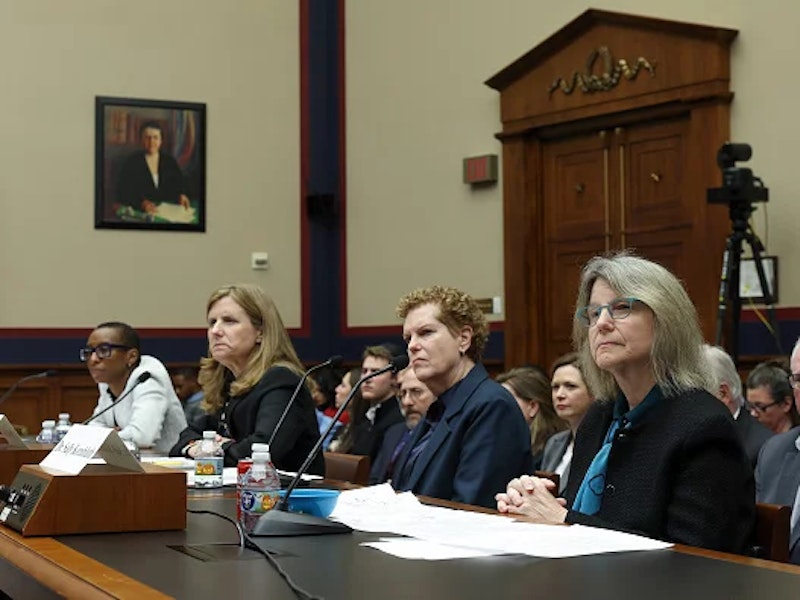It was a kind of nadir for the American meritocracy: the presidents of three of the most prestigious universities—and institutions—in the US, answering pointed questions woodenly, emptily, and in the very same words (all three are fans of “context”).
After Elizabeth Magill of Penn, Claudine Gay of Harvard, and Sally Kornbluth of MIT struggled to address the questions of Elise Stefanik (R-NY) about antisemitic speech on campus earlier this month, some remarked that they seemed ill-prepared. In fact, they were overprepared in a way that shows clearly what it’s like at the upper end of the alleged meritocracy that runs universities and the media.
They gave extremely similar, and similarly hedged and evasive, answers. This is no coincidence. Before their testimony all three consulted the very same high-power DC/Boston law firm, WilmerHale. "Offering significant agency experience, multijurisdictional capabilities, and a successful record in avoiding prosecutions and fines for its clients," the website Legal500.com reports, "the cartel team at WilmerHale is well-placed to advise clients across industries on cartel proceedings, as well as representing them in litigation."
We've certainly got a cartel here. The litigation’s developing. But those aren’t the only problems.
One might’ve thought of institutions like Harvard, Penn, and MIT as bastions of self-confidence, derived from their extreme wealth and prestige (Harvard is sitting on a $50 billion endowment, as people shuffle into the Kennedy School for Government from the cabinet and then shuffle back again). People who could rise to the presidency of such institutions, one might likewise think, must’ve developed very clear convictions in their eminent careers, as well as very effective strategies for implementing them. The presidents of our top universities must be among the most excellent of us.
This, however, misconstrues the ways bureaucracies and hierarchies work, and in particular how academic bureaucracies and hierarchies work. The first priority in hiring a president for a large university is safety. You’re looking for the least controversial candidate. This is a complex matter. Safety has many dimensions, and college presidents have many constituencies with different safety priorities, including faculty, donors, administrators, governments and other funding bodies, and even students. But the people hiring college presidents and other personnel take a kind of Hippocratic oath: first, don't make a mistake.
The fact that Penn hired WilmerHale to coach its president through the hearings likely convinced Harvard that WilmerHale was a safe choice. And then that both Penn and Harvard used it to assure MIT that WilmerHale was a safe choice. It's a common reasoning process. We might speculate, for example, that the fact that The Atlantic hired David Brooks assured NPR that he is safe. That The Atlantic and NPR hired him assured PBS. That he was in The Atlantic, NPR, and PBS indicated that he was safe for The New York Times. Soon he supposedly represented the political right to all of the meritocracy.
Then we end up with a hierarchy: safest people on top. Maybe not for Brooks, but for college presidents, this may backfire, as it did so spectacularly in this case. Sometimes hedging all bets and making no clear assertions is an outrageous response, as when someone is pressing you about freedom and genocide. We should expect college presidents to be passionate and definite about academic freedom and about bigotry on campus, but here they appeared to have bought their deepest convictions off the shelf from the same PowerPoint slide.
—Follow Crispin Sartwell at X: @CrispinSartwell

